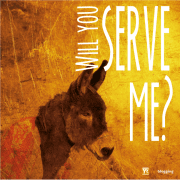How to Receive Correction Even When It Hurts
Famously, in my country’s recent political history, a minister of parliament was delivering a speech supporting a bill on climate change. The MP—Chlöe Swarbrick, then 25 years old, the youngest member in New Zealand’s parliament since 1975—was interrupted by another MP 20 years her senior. Visibly miffed, Swarbrick simply responded with two words: “Okay boomer.”
That catchphrase was coined years ago, yet it’s still what comes to mind when I think about the struggle to be teachable.
The issue of teachability reminds me of the time I decided to take up singing lessons. It was absolutely the wrong timing as I had too much on my plate, but I was undeterred. Over the course of a few lessons, I barely practised, and I had to cancel a handful at the last minute because something (in my overpacked schedule) cropped up.
Eventually, my teacher sent me a brief email expressing her frustration at what she perceived as a lack of commitment, and went on to say that, scripturally speaking, my “yes” should be a “yes” and my “no” should be a “no”, and if I cannot follow through, she wasn’t interested in teaching me.
Of course, my immediate reaction was: “Does she not know how busy I am? How dare she question my integrity and commitment? She just doesn’t get it.”
I’m sure we are not the only generation who has ever sighed and rolled their eyes at their elders, saying, “You just don’t get it.” In fact, there was a study that talked about why every generation has considered themselves smarter, more aware, and more knowledgeable than the generations before.[1]
I don’t like it when people correct me. Maybe because I’m like every other person before me, convinced that I know what I’m doing and don’t really need anyone else’s input.
What is this wrestling point? Pride. It hurts our pride when we are corrected or chastised, when someone (whether rightfully or wrongfully) has looked at something we have done and said, “You got it wrong here.” Just like how, when confronted by my singing teacher, I felt bruised, embarrassed, and awkward.
We don’t like to be wrong, or to have fallen short, because we want to elevate ourselves. In effect, that was the very first sin too. Mankind has been battling with pride ever since. It is pride that ruffles us up and winces when we are corrected.
Yet here are some tough words from Proverbs 12:1: “Whoever loves discipline loves knowledge, but whoever hates correction is stupid.”
Humbly submit for our good
As the book of 1 Peter addresses the elders within the church, exhorting them to be good shepherds, to not lord over those entrusted to them, and to live as examples to their flock, we also find this little interlude in chapter 5, verse 5:
“In the same way, you who are younger, submit yourselves to your elders. All of you, clothe yourselves with humility toward one another, because,
‘God opposes the proud
but shows favour to the humble.’”
How do we adopt such a posture of teachability, that looks to glean whatever benefit we can, and gratefully accept criticism or correction?
Just the other day, I’d spent the whole day telling my daughter off—”Don’t do that. Don’t do this.”—and we were both exhausted by bedtime. It was rough, but afterwards, I was comforted when I came across this verse: “Discipline your children for in that there is hope; do not be a willing party to their death” (Proverbs 19:18).
I don’t want to be a willing party to anyone’s death, and if I can imagine the people correcting me feeling the same way, then the correction will hopefully sting less.
A hallmark of our faith is in engaging with community—investing in relationships where people can speak truth into our lives with love, as we likewise speak into the lives of others (Ephesians 4:15). “As iron sharpens iron, so one person sharpens another” (Proverbs 27:17). This is why we ought to seek relationships where people care enough about who we are and who we’re becoming to advise us, even at the risk of upsetting us.
This also means we need to prepare our hearts for this type of relationship. Seek out friends who are wise and who care enough. Ask them to be honest, to tell us what they think. And pray that God gives us discernment.
Resist the urge to make ourselves look better
I had a university lecturer who would always say, “Notice what you notice”, and likewise I would say it is worth noticing how we respond to correction.
What’s your gut reaction to anyone speaking correction into your life? Does your back arch, your fingers tense? Do you immediately scramble for all the reasons that the correction doesn’t apply or isn’t relevant? In my case with the singing teacher, I noticed that my first response was to justify.
I recall recently doing something dumb, so I rang my wisest friend, the one I called when I needed a “big sister”. At first, I wanted to “dress up” my mistake—soften things so I didn’t seem as silly and in the wrong as I was. But as my lecturer said, I noticed what I noticed, so I left out the excuses. The conversation was enormously valuable.
Because pride is a part of our sinful nature, we can only really be free from it when we invite God to help us deal with it. We ask Him to open our own eyes and notice when we are doing something to pump ourselves up. We lay aside our agendas, self-image, and PR campaigns to live life transparently.
Years ago, I was asked by our church’s head of worship to lead the youth team, even though I was a pianist and had never sung backing vocals, let alone led a worship set. My time in that role was an incredible experience and I feel so privileged to have undertaken it, but I remember this one Friday night when it all went to my head.
I always thought all the cool people led worship with the guitar. So, we were short a guitarist that week, and as I had begun to teach myself to play guitar on the Internet, I was confident I could fill the spot. (Not to mention how awesome I’d look, I thought.)
We entered this musical interlude, I indicated for the band to drop, and I’d strum a low bridge on my guitar. Then . . . I forgot the chords and the lyrics, and there was this huge awkward silence.
It can become very easy, even as a professing, Bible-believing Christian to become fixated on building our own Babels, metaphorically speaking—making a name for ourselves, rather than inviting God to help us deal with our pride. Our carnal nature wrestles within us to do things in our strength for our outcomes, which is why I suspect we struggle with being corrected.
The Christian life is one of a call to humility, Christ as our example never pointed to Himself, but instead to the Father. Because all of life is about living for God, not our reputation and fame.
Where we continue to invite God to help us wrestle the beast that is our pride, it enables us to take on board the fruitful correction of others.
Remember who the real MVP is
Ultimately, we know that God works through relationships to achieve the purposes of His kingdom. So, we need to appreciate that while we are involved, things aren’t ultimately about us. We are partners in the coming of the Kingdom of God (1 Corinthians 3:9).
When we understand that ultimately, we are servants of Christ, we can position ourselves for humility.
At the risk of sharing every embarrassing thing that has ever happened to me, another time I was singing on a pretty “big deal” Sunday, when the main worship pastor was visiting our centre, and everyone wanted to do their very best.
What happened was, the guitarist struck up on the wrong chord, and the whole intro to the song was a train wreck. I could not find the right key, so ended up singing the whole song shifting and sliding between keys.
Thankfully, this was after the incident at Friday youth, and I had learned from that, so I was able to respond in a much better way. Instead of recoiling in embarrassment, I remembered this wasn’t about me.
Had I looked foolish in front of the entire congregation? Yes. Did it matter what I looked like? No. Because my whole life, whether I’ve aced it, or sung totally out of tune, is a sacrifice to God.
“Maybe you should have practised more?” came a suggestion afterwards. But I had practised, and I’d given it my best. So I shook off the comment, rather than wincing or saying something terse in response.
We need to bring this same attitude to correction. That it is about God’s glory, not our own.
Do I now never struggle with pride or with being corrected, and am this waif of humility and Christlikeness? Not at all. It still stings when I’m corrected, but I notice it. And as much as I can, I try to live every day, positioning myself in such a way that I’m listening to what God might be saying through the others around me, and living ultimately for Him.
Footnotes:
[1] Jessica Stillman, “A New Study Reveals the Surprising Reason Why Every Generation Complains About ‘Kids These Days’”, INC. Australia, October 25, 2019.
















Leave a Reply
Want to join the discussion?Feel free to contribute!